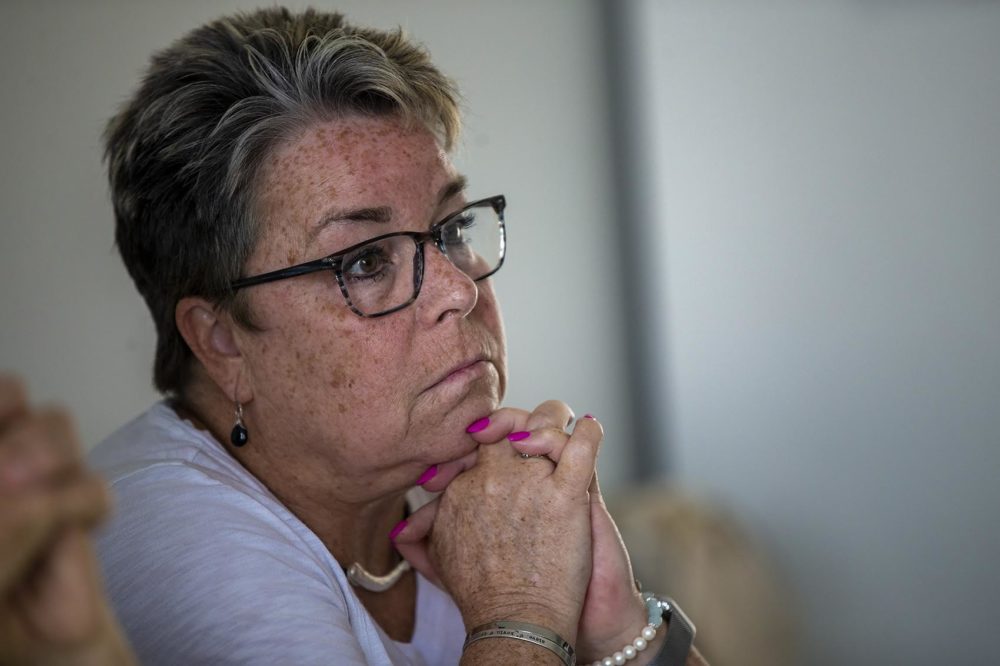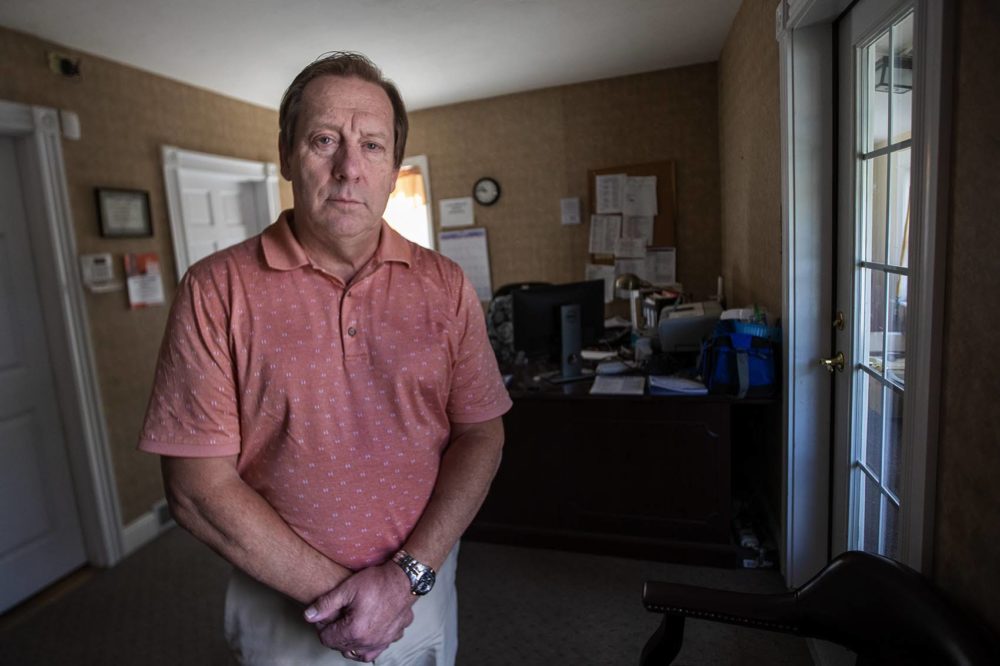Advertisement
Mass. Weighs Bringing In Drug-Sniffing Dogs To Its Psychiatric Hospitals

For years, Cheryl Labonte said her 29-year-old son, David, struggled to get proper treatment for his mental health issues. Because she asked him to, David would often call her when he would self-medicate with street drugs.
"I would keep him on the phone to make sure he stayed coherent and breathing," Labonte said. "I respect David for trusting me enough to do that."
When David arrived late last year at the Worcester Recovery Hospital (WRCH) — Massachusetts' flagship psychiatric hospital — Cheryl thought he would finally get the help and proper medication he needed to deal with psychosis.
About three months after David was admitted, the hospital called Labonte. Her son had been found unresponsive in a patient bathroom. He was rushed to UMass Medical Center, where he later died. Tests determined David had overdosed on cocaine laced with fentanyl.
"He went to Worcester to get help, and you should never get this kind of call," Labonte said." You should get [your loved one] back — alive."
After Overdoses, New Safety Moves
The Worcester Recovery Hospital is one of six inpatient psychiatric hospitals overseen by the Massachusetts Department of Mental Health. Built in 2012, it was created to provide state-of-the-art, individualized mental health care.
Since 2016, Labonte's overdose was the fifth — and only fatal — overdose at WRCH.
In response to his death, DMH imposed new security restrictions. Bathrooms were to be locked until patients asked to use them. Passes to leave hospital grounds were limited. There were changes to what patients' loved ones could bring inside the hospital during visits. Families told WBUR some patients are not allowed outside at all.
DMH said the restrictions reflect that safety is its first priority, and that the department is reviewing all of its policies. And now, the department is also weighing a controversial proposal: whether to place drug-sniffing dogs in all of its psychiatric facilities.
Advertisement
The idea has sparked criticism from some mental health advocates, including the National Alliance on Mental Illness in Massachusetts.
NAMI Executive Director Deborah Shields said research shows that drug-sniffing dogs steps are not effective, and that such a move could make psychiatric hospitals feel like prisons.
"We're very concerned that having drug-sniffing dogs in a psychiatric hospital could greatly undermine the therapeutic environment and could greatly scare and traumatize the people in there seeking treatment," she said.
Some of the biggest supporters of bringing in the dogs are nurses, however.
The Worcester Recovery Hospital cost more than $300 million to build when it opened its floors in hopes of offering respectful individualized care to more than 300 patients. But for years now, the hospital has been plagued by reports of violence and understaffing.
DMH said that between 2016 and 2018, there were 96 reported assaults at the hospital that required medical attention. The state did not provide additional details about those assaults.

William King, a nurse at WRCH, said steps need to be taken to protect the safety of all those inside the hospital. He said he was assaulted last year by a patient who was refusing medication.
The nurses union recently proposed several bills designed to improve safety at all state hospitals. (DMH said it is reviewing safety procedures at all its hospitals — not just WRCH.) Among the union's proposals is a measure that would create new intensive stabilization units for aggressive patients, and one that would create a specialized unit at Taunton State Hospital — for those with both mental illness and substance use disorders.
"We can't do nothing," said Karen Coughlin, vice president of the Massachusetts Nurses Association and a retired former Taunton State Hospital nurse. "We have to face reality. Every time there are budget cuts, mental health funding goes, and we don't have the resources we need to an increasingly difficult population."
The Department of Mental Health has scheduled a public hearing for Sept. 12 on the proposal to bring drug-sniffing dogs into the state's psychiatric hospitals.
This segment aired on August 30, 2019.
